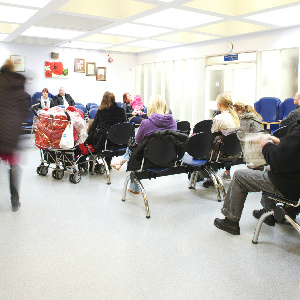Government U-turn on charging migrants for GP appointments

GP appointments will continue to be free to access for temporary migrants to the UK, but practices will be expected to ‘actively participate’ in identifying patients who are liable for charges for other NHS services, the Government has announced.
The announcement represents a U-turn on previous proposals published last year that would mean GPs would be forced to charge non-EU migrants for all primary care ‘at the point of delivery’ – including emergencies – unless they have paid a new levy of between £200 and £500 per year.
The Government said that they had abandoned the plans as the recoverable charges was likely to outweigh the administration costs of collecting fees, but said that they were planning to introduce a ‘registration and chargeability administration’ that GPs would have to co-operate with.
Plans to charge migrants to see a GP had countered stinging critique from doctor leaders, including the BMA and the RCGP, which said they could lead to adverse effects on public health and cause GPs to become a ‘new border agency’.
The Government said it had reached the decision not to introduce charges for GP appointments after listening to warnings over administrative problems for GP practices and the potential negative impact on public health.
The Government’s consultation response said: ‘We will be retaining free access to GP consultations in recognition of the critical importance of unrestricted access to early prompt diagnosis and intervention in the health interests of both public and patient health, as well as the likely cost benefits of treating the patient early to avoid emergency treatment at a later stage.
‘We also believe that the administrative cost may outweigh the recoverable charges for frequently used but relatively inexpensive services, but we will examine this in detail in the implementation impact assessment.’
Pulse revealed last January that more than half of GPs believe NHS entitlements for migrants are too generous, with some practices refusing to register patients they believe to be illegal immigrants or failed asylum seekers. The Government said this survey and its own research showed that there was support for their plans to charge for some NHS services.
The document read: ‘Currently there is little if any exchange of information between GPs and subsequent treatment providers regarding a patient’s potential chargeability. Other proposals in the consultation seek to develop and implement a new registration and chargeability administration linked to their NHS Number and patient record.’
Related articles
In full: Government’s full consultation response
‘We will therefore retain free access to GP consultations but expect GP practices to participate actively in the administration of this new system. The qualitative research, our engagement programme and a recent survey of GPs indicate that they are generally supportive of a clearer and fairer system. We will be working with GP practices to design a system that is not unduly burdensome for them.’
But despite the Government u-turn both the BMA and the RCGP remained critical of final plans.
GPC chair Dr Chaand Nagpaul said the final plans would still cause added workload for GPs. He warned: ‘In their current form these proposals could introduce another layer of time consuming bureaucracy to general practice at a time when GPs and their staff are struggling to cope with rising workload and patient demand. GPs should be spending their time treating patients and not filling in forms for a complicated charging system that may not in the long term save large amounts of money.’
BMA chair Dr Mark Porter commented: ‘It is important that anyone accessing NHS services is entitled to do so. However, the Government’s current proposals could create unintended drawbacks for the NHS and patients. They are likely to create a complex patchwork of charging and access entitlements where some services remain free, such as GP appointments, while others will be chargeable. There is particular confusion over access entitlements to emergency care services, given the proposals introduce charging for emergency department visits yet say no patient will be turned away if they need care.’
RCGP spokesperson Dr Helen Stokes-Lampard, a GP in Birmingham, said: ‘We are grateful that the Government appears to have made some concessions to its original proposals and we are pleased that access to a GP will remain free at the point of need.’
‘However, we still need reassurances that GPs are not going to be pressed into acting as an arm of the Border Agency and we remain unconvinced that the proposals will work across the NHS. There is no detail in today’s announcement about how the new system for recording and monitoring foreign nationals will operate – or who will run it.’










